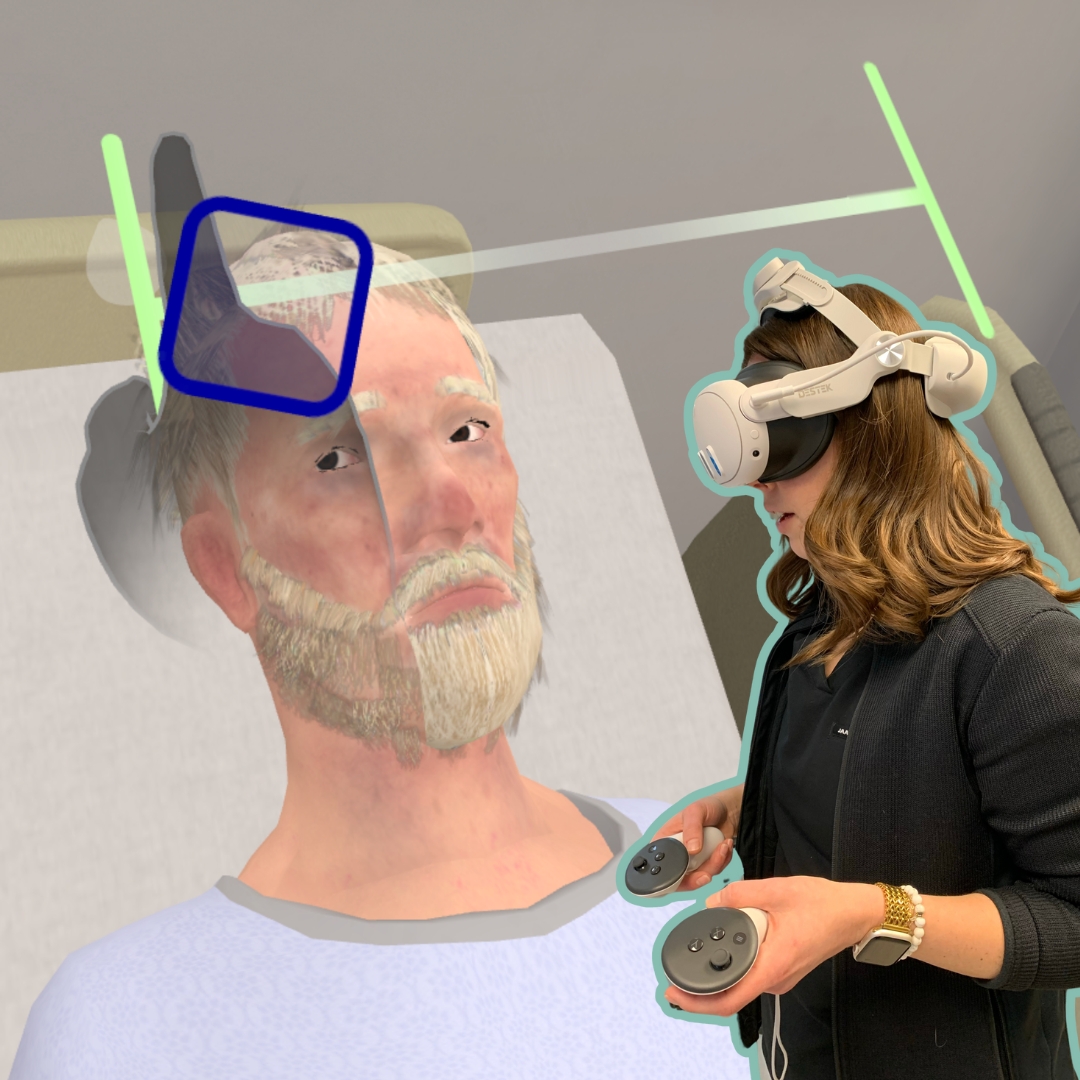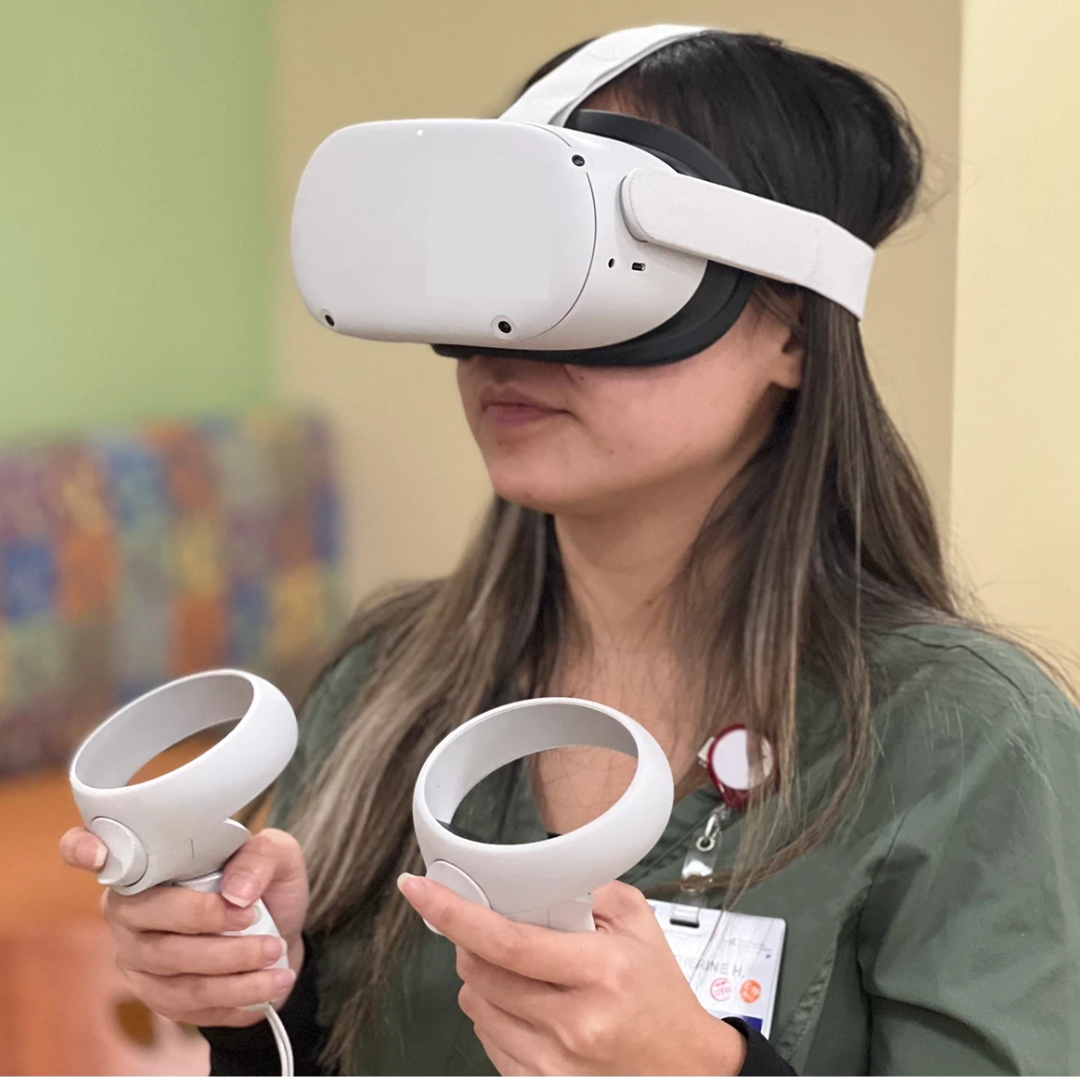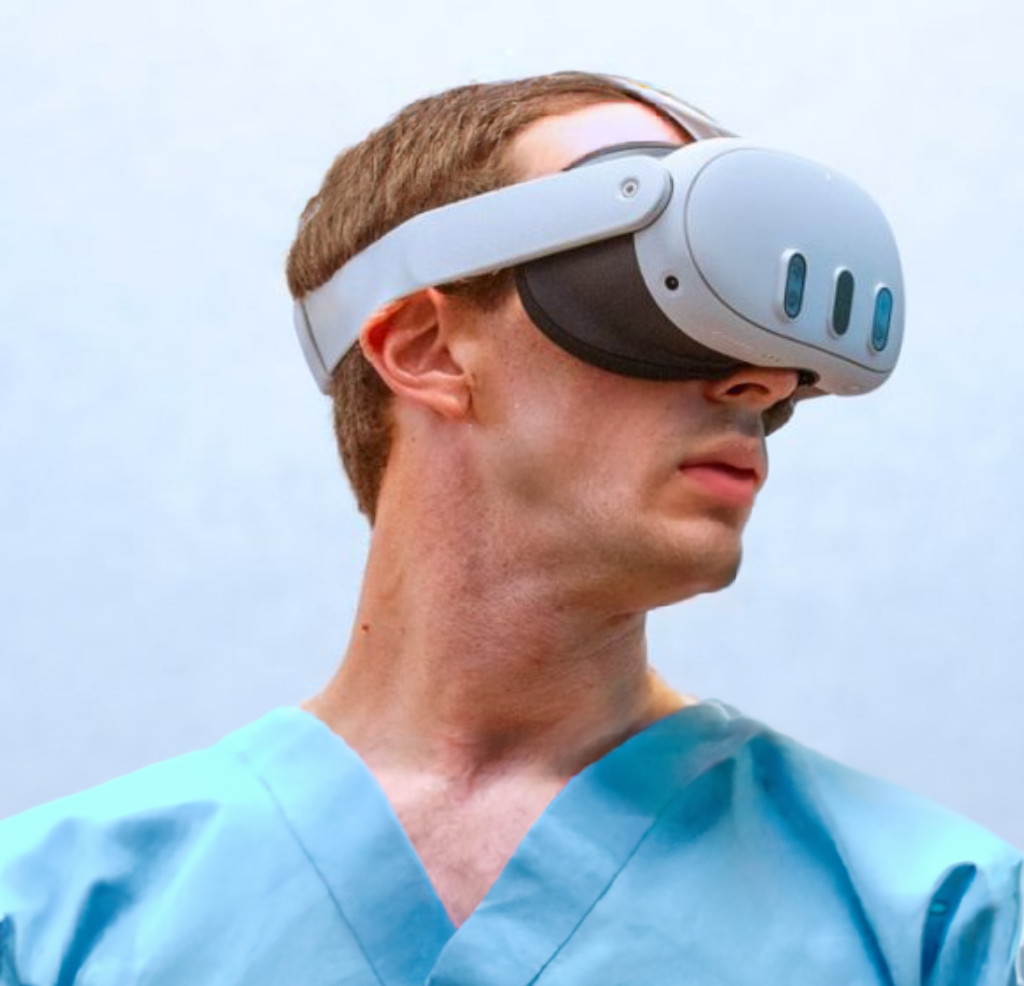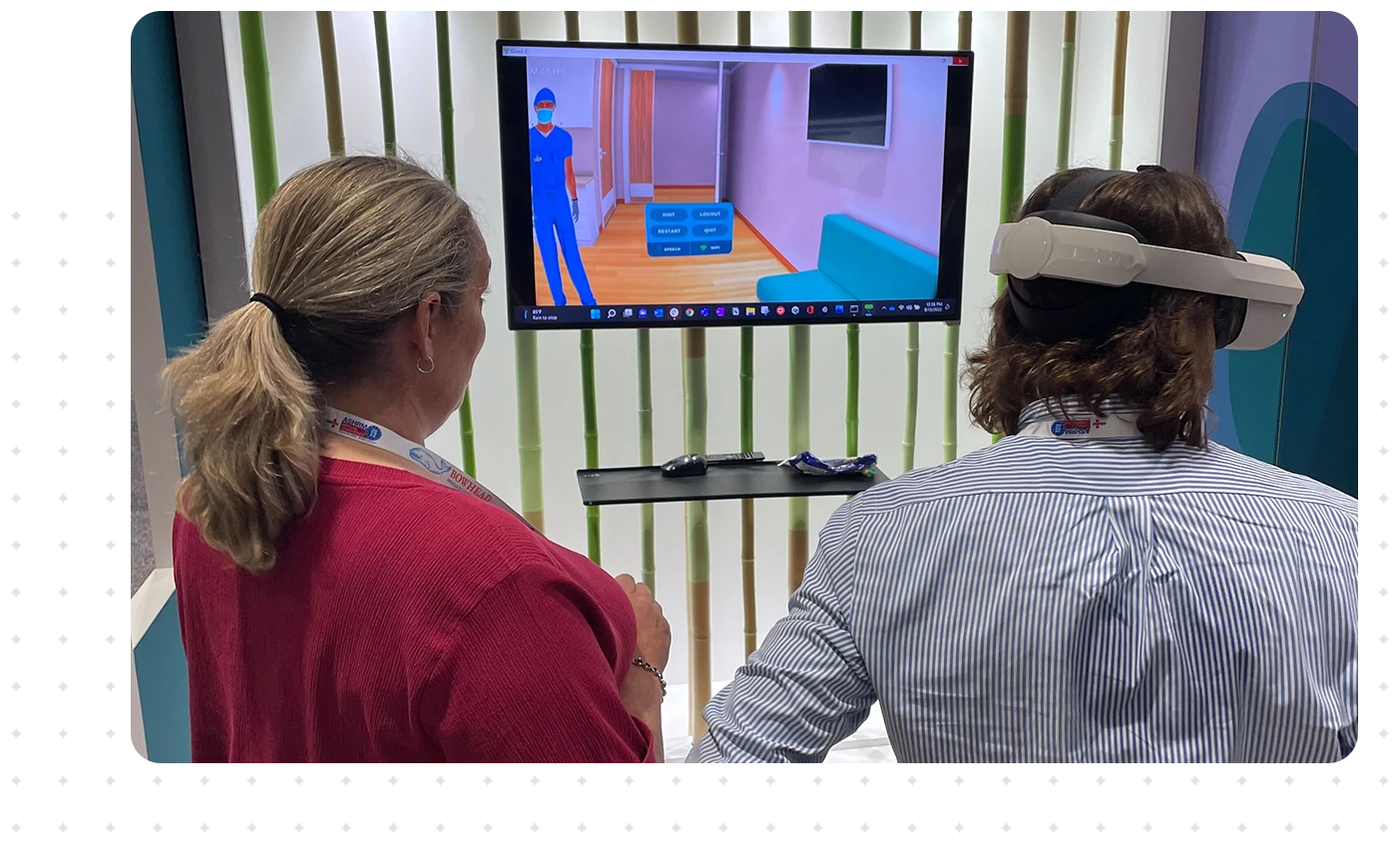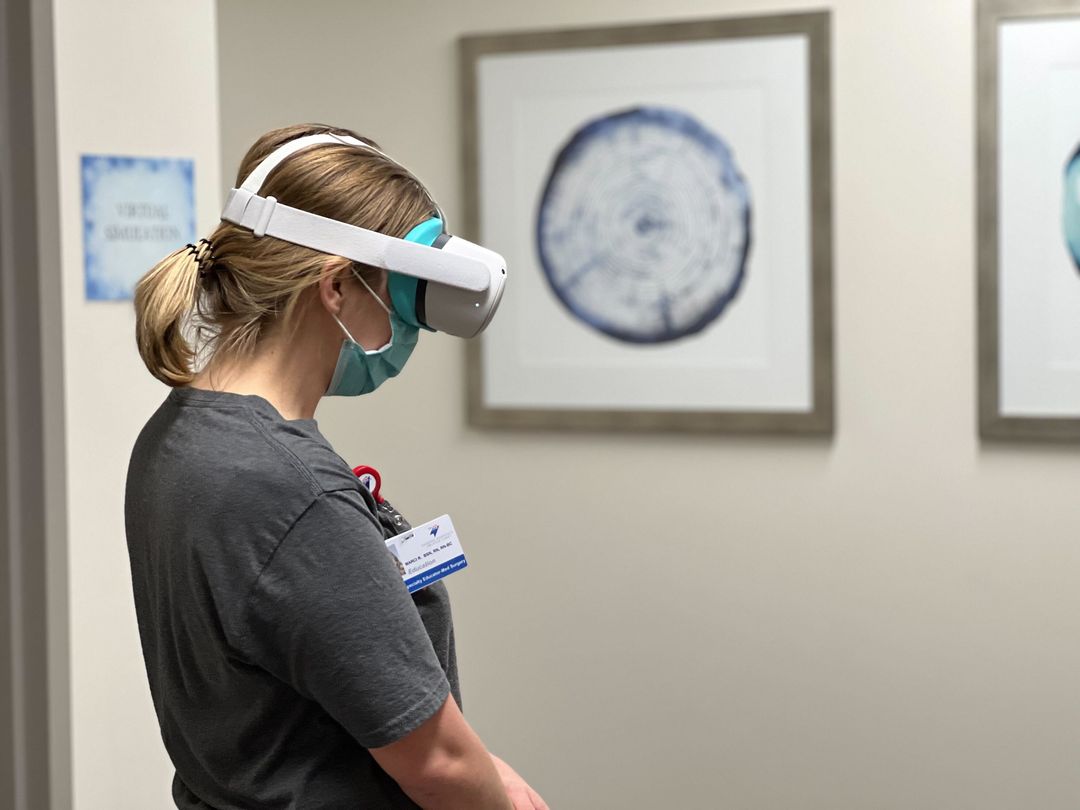
What Makes Health Scholars VR Training Different?
Published February 3, 2023
Virtual reality (VR) training for healthcare is more than SIM; it’s an entire immersive experience that helps clinicians train their minds and bodies to recognize and respond deliberately and calmly to high-risk care events.
Health Scholars has curated specific VR elements to make that experience as realistic as possible. As a result, clinicians go beyond practicing a simple drill of following a checklist.
Read on to learn how these elements work together to create a productive training experience for all frontline clinicians.
Our 4 VR Training Differentiators
The Health Scholars VR training program consists of four key components that distinguish our approach from classroom or SIM learning and other VR technologies.
1. Team Lead Role
The Team Lead role is specifically curated to help build learner confidence. Much like our advanced voice-directed technology, the Team Lead role encourages clinicians to speak up in scenarios designed to help fine-tune their expertise and develop social and clinical confidence. This role also reinforces the understanding of every teammate’s role outside of their typical immediate sphere of work.
2. Voice-Directed Technology
Voice-directed communication empowers clinicians to physically exercise their voice to help direct virtual teammates’ actions without having to point and click within their virtual environment. Removing the computerized element of a cursor and clicking furthers the immersive experience by allowing the learner to feel wholly integrated into the virtual environment meant to simulate reality as closely as possible.
Strong crew resource management includes equipping team members to speak up in times of crisis, and Health Scholars allows you to do this via patent-pending voice technology that helps learners build their confidence with a different protocol.
3. Closed Loop Communication
VR teammates “hear” the learner’s voice as they would in the real world and follow up with closed loop communication by repeating back to them the protocol that will be performed or correcting the learner if the requested action is incorrect. Closed loop communication ensures learners can practice in a realistic environment much like their own and mimic the interactions they’ll engage in throughout their careers and practice.
4. Debrief in Headset
Health Scholars designs our training applications using national medical standards, and we can configure apps to align with facility policies and procedures. Each debrief gives the learner a complete picture of their performance, including areas they excel in and opportunities for improvement –helping them continue to learn and grow within a safe and judgment-free environment.
The Future of Healthcare VR Training
Support your clinicians by providing a private, judgment-free space where they can gain the experience needed to respond effectively in moments of crisis. We developed each element of the Health Scholars VR training program to facilitate a next-level, immersive experience that guides learners to higher achievement, both inside and outside the headset.
Download our eGuide, The ‘Why’ and ‘How’ of Virtual Reality Clinical Training, to discover how you can digitally transform your training programs using VR.

